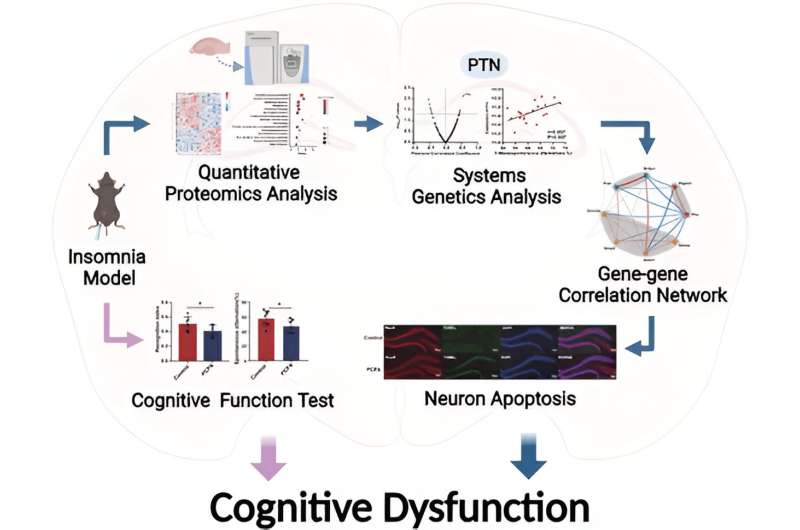This article has been reviewed according to Science X's editorial process and policies. Editors have highlighted the following attributes while ensuring the content's credibility:
fact-checked
peer-reviewed publication
trusted source
proofread
Study uncovers new mechanism by which sleep protects brain function

Not only does a lack of sleep make you feel awful, research has shown it impairs the brain. What's more, sleep loss over long periods can even increase risk for Alzheimer's and other neurological diseases. Researchers want to understand how sleep deprivation causes this harm. In a new study in the Journal of Proteome Research, a team working with mice has identified a protective protein whose level declines with sleep deprivation, leading to neuronal death.
Studies indicate that lack of sleep leads to neurological damage in the hippocampus, a part of the brain involved in learning and memory. To better understand the changes responsible for this effect, scientists have begun examining shifts in the abundance of proteins and RNA, which contains genetically encoded instructions derived from DNA. In this way, previous studies have identified some factors linking sleep loss to damage; however, researchers haven't generally confirmed they play a role in cognitive function within larger animal populations. So, Fuyi Xu, Jia Mi and their colleagues set out to further explore how sleep loss damages the brain and to corroborate their findings.
To start off, the researchers evaluated how well mice navigated a simple maze and learned to recognize new objects after having been sleep-deprived for two days. They then extracted the proteins in the animals' hippocampi and identified those whose abundance changed. Then, to further narrow the possibilities, they looked at data linking these proteins to maze performance in related strains of mice that had not experienced sleep deprivation.
This approach led the researchers to pleiotrophin (PTN), which declined in the sleep-deprived mice. Through an analysis of RNA, the team identified the molecular pathway by which a loss of PTN causes cells in the hippocampus to die. When they looked at genetic studies in humans, they found that PTN is implicated in Alzheimer's and other neurodegenerative diseases. This research has uncovered a new mechanism by which sleep protects brain function, according to the researchers, who also note that PTN levels could serve as an indicator of cognitive impairment resulting from insomnia.
More information: Yutong Zhou et al, The Combination of Quantitative Proteomics and Systems Genetics Analysis Reveals that PTN Is Associated with Sleep-Loss-Induced Cognitive Impairment, Journal of Proteome Research (2023). DOI: 10.1021/acs.jproteome.3c00269




















